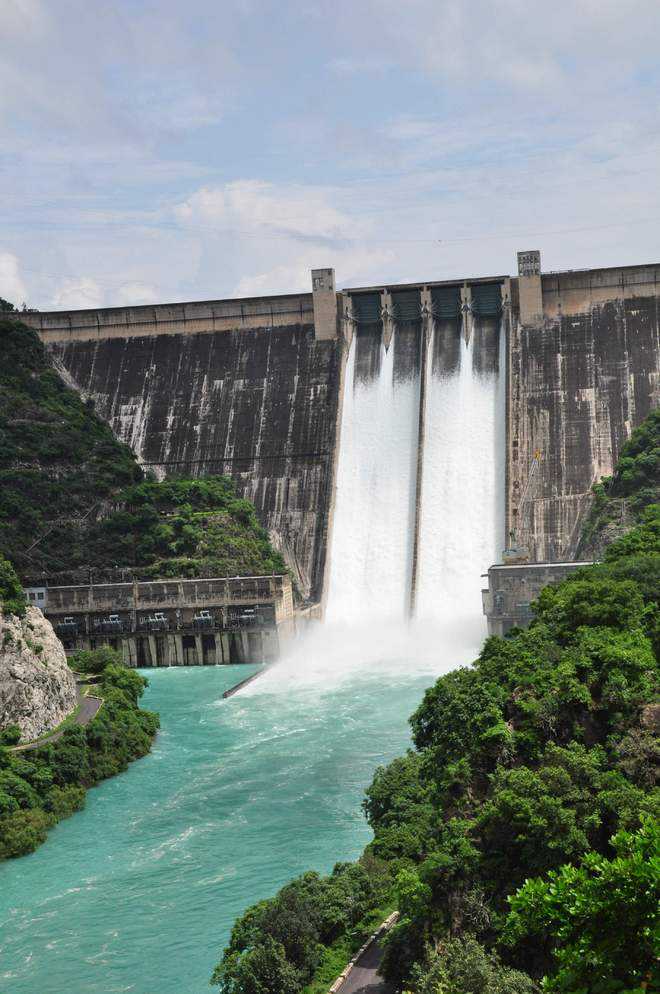3 months after overflowing, Bhakra level below normal
Vijay Mohan
Tribune News Service
Chandigarh, November 17
Just three months after the water level in the crucial reservoir at Bhakra Dam exceeded its maximum permissible limit, the storage has dipped below normal for this time of the year.
The present availability of water at Bhakra is 4.68 billion cubic metres (BCM) against its total capacity of 6.23 BCM, which is five per cent below normal, according to data compiled by the Central Water Commission (CWC). Till the end of October, storage was 4 per cent above normal.
While the current storage for this week is 75 per cent of the reservoir’s total capacity, it was 86 per cent at this time last year and stood at an average of 80 per cent during the last 10 years.
Besides Bhakra, which lies on the Sutlej, there are three major reservoirs in Himachal Pradesh. The others are at Pong Dam on the Beas and Kol Dam on the Sutlej upstream of Bhakra. These have a combined hydroelectricity generation potential of 2,575 mega watts besides providing water for domestic use and irrigation.
In August, parts of Punjab, especially those along the courses of the Sutlej and Beas, had experienced the worst floods in 40 years due to heavy rains in the region. Bhakra had experienced record inflows, with 3.11 lakh cusecs of water being generated into its reservoir from the catchment area.
Water level in the reservoir had crossed the permissible limit of 1,680 feet by three feet requiring excess water to be discharged through the floodgates in a controlled manner. Additional water was also generated into the Sutlej from numerous rivulets and nallahs downstream of the dam, inundating low-lying areas.
The total storage capacity available at the three dams in HP is 12.48 BCM and at present 8.79 BCM, i.e. 70 per cent, is available. This is seven per cent below normal. It was 10.72 BCM last year and on an average 9.42 BCM over the past 10 years, according to the CWC.
At Pong, which too had overflowed last year and had touched the upper mark this year, the storage is lower. It is 65 per cent this year as compared to last year’s 86 per cent and past 10 years’ average of 71 per cent.
At Kol Dam, and Thein Dam that lies on the Ravi in Punjab, the situation ls better. At 92 per cent, the storage at Kol is a notch above the 10-year average of 91 per cent, whereas at Thein, the storage is 79 per cent vis-à-vis the 10-year average of 59 per cent, making it 44 per cent above normal.
Storage 4% above normal till Oct-end
- The present availability of water at Bhakra is 4.68 billion cubic metres (BCM) against its total capacity of 6.23 BCM, which is five per cent below normal, according to data compiled by the Central Water Commission (CWC). Till the end of October, storage was 4 per cent above normal.
- While the current storage for this week is 75% of the reservoir's total capacity, it was 86% at this time last year and stood at an average of 80% during the last 10 years.









